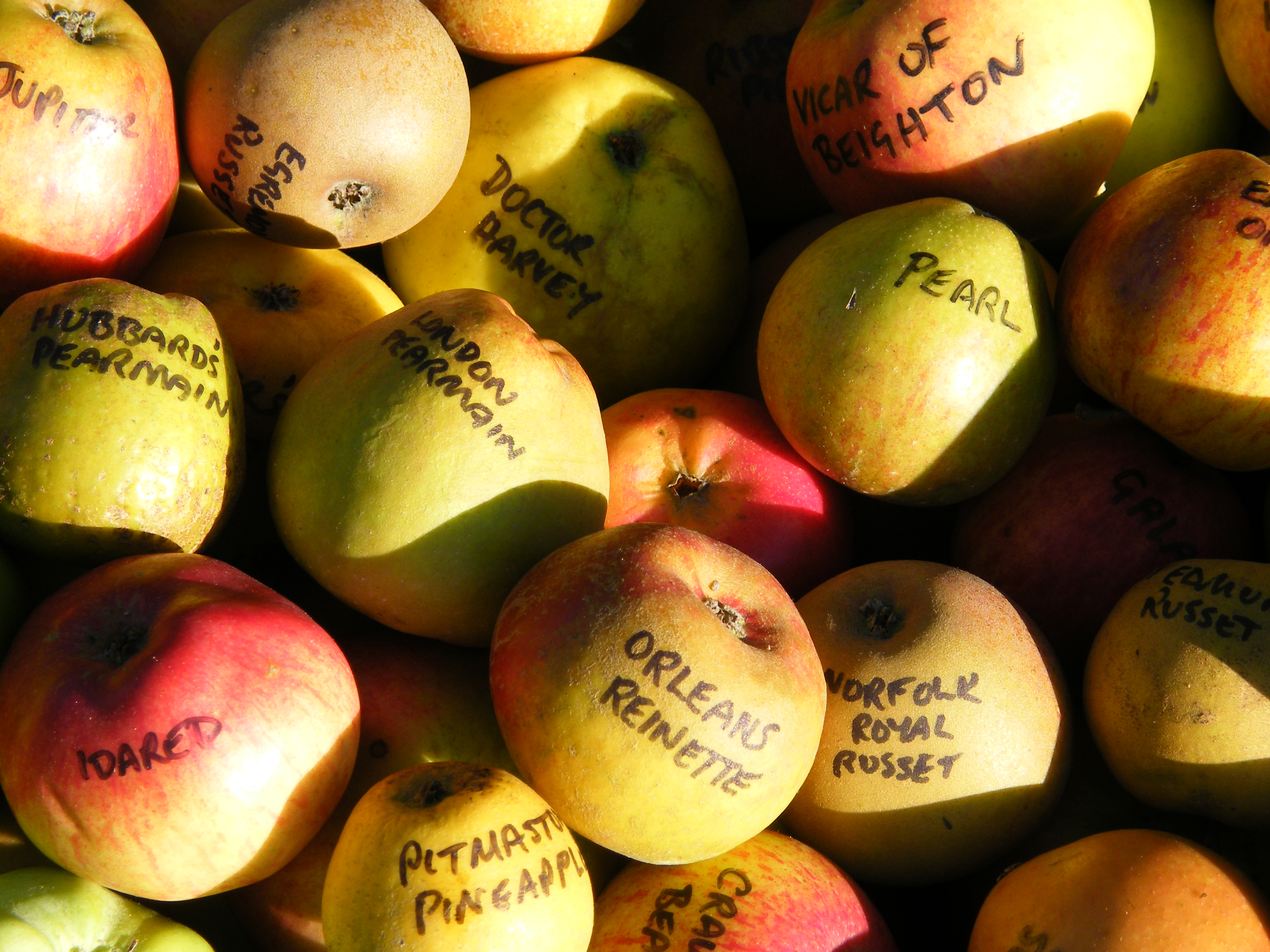Fruit heritage

"You can make an apple pie every day for 16 years and not use the same variety twice..
Common Ground
The Apple Source Book (1991)
Let us know which fruit varieties are growing in your orchard.
What is a fruit variety?
Growing a new tree of a particular fruit variety can’t normally be done by planting pips or seeds from the parent tree. Each pip will develop into a new variety as it contains a new unique mix of genes from its parent trees. This means that each tree will be slightly different and produce slightly different fruit. However these new genetic mixes will only rarely produce an especially good quality fruit. So instead fruit varieties have to be propagated by grafting. To do this with fruit trees we take graft-wood (essentially twigs) or buds, and graft them on to a new rootstock.
There are thousands of fruit varieties in the UK, many of which are regionally distinct, often still only grown in the areas they were originally discovered and cultivated.
Grafting with vegetative material means you do not change the genetic identity of the variety at all. All trees belonging to one variety are genetically identical to each other, but unique and genetically distinct from any other variety.
In this manner, the varieties we see in our orchards today have seen an uninterrupted chain of care and propagation. Since their establishment, possibly hundreds of years ago, they have been carefully propagated through grafting and budding. Sadly, more varieties than the thousands that exist today have already been lost over the years due to falling out of fashion in favour of a newer variety or the demise of local fruit production.
There are many fruit varieties which have historical associations with particular places. Some have been bred or discovered in an area and are named after a place or person, or popularly grown in a certain area. The current decline in the area of traditional orchards across the UK is threatening many of these varieties. Without this chain of care being continued, much of this diversity and heritage could be lost.
Planting a fruit tree?
There are a number of things we can do to protect our fruit diversity and heritage. If you are planting trees in your orchard or garden, think about the cultivar you want to plant.
- It is important to know what type of apple you want. Are you mainly interested in fruit for eating? Cooking? Cider? This is one of your most important considerations, there is no use planting a tree you are not going to use, no matter how local the variety is! Taste is also a very subjective matter, and the best way to know what apple varieties you enjoy is by trying them. You can often find a great array of apples to taste and for sale at apple days which might help you decide which variety to plant.
- Find out what varieties are local to your orchard or garden.
- If you have an existing orchard with known local varieties, or even if you aren’t sure what varieties you have, you could get them grafted to make new trees. Most fruit trees don’t have a very long lifespan, and taking a graft from them is better done sooner rather than later, especially any that are getting towards the end of their natural life.
 What varieties are local to my area?
What varieties are local to my area?
Our new FruitFinder tool gives you information on thousands of varieties about where they were raised or discovered, their culinary use, and where you can either buy trees or get graftwood to graft your own.
Alternatively, to find local orchard produce and tree suppliers, search the Orchard Network gazetteer.
Where can I find out more?
See our page on fruit variety identification, or you can discover what varieties you already have by taking fruit to be identified at apple days, where there will often be an ID table with experts happy to help put a name to your apple.
Apple day events are listed here.
